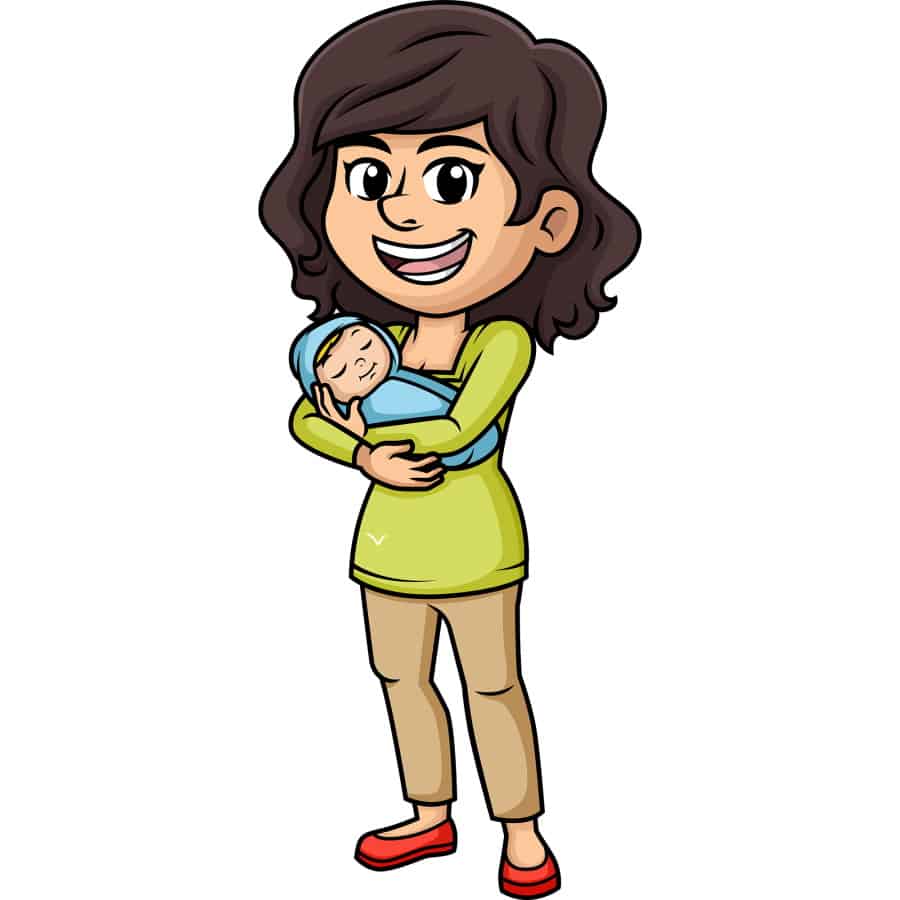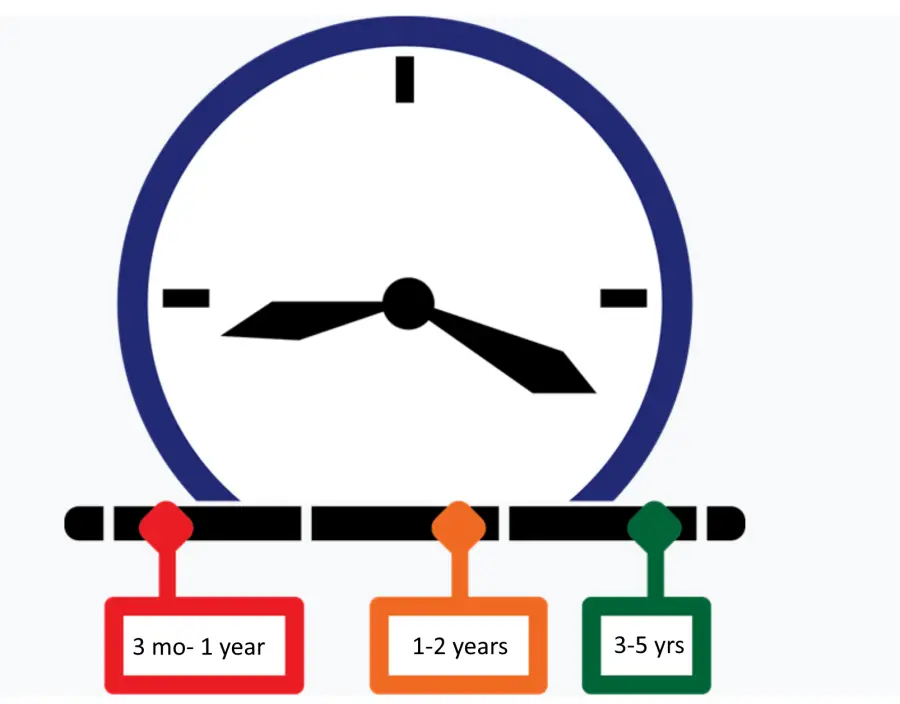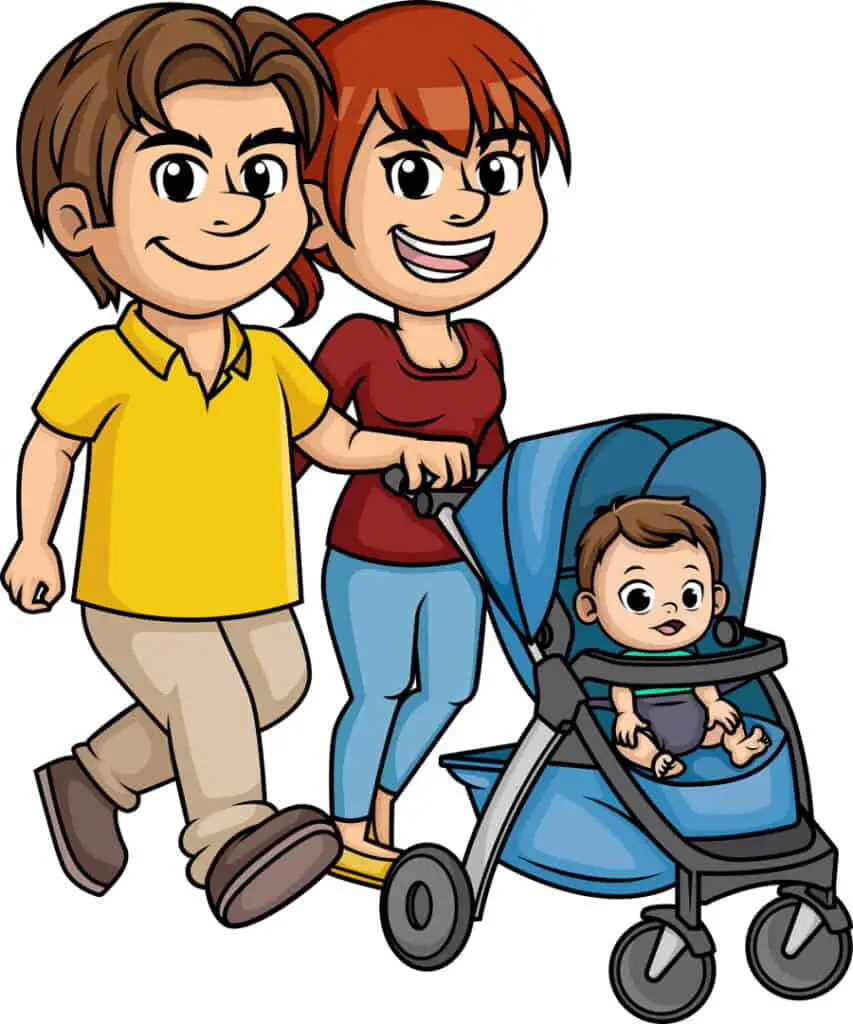
When people think about critical periods for language learning, they might be thinking of second language acquisition. There is a window of time during development in which learning a second language is easier (I addressed that here). However, primary language learning operates as a critical period, too.
The initial period of language learning is a critical stage. Research shows as a child’s brain develops, the ability to learn certain aspects of human language will gets more difficult. Thus, it is crucial to child development they achieve language milestones in a particular period.
What this article is referring to as the language learning period is not simply a period in which one learns to speak a particular language, but the period in which a child learns the basics of human communication. You will see how initial language learning affects a child’s development and how to know that this period is progressing normally.
Contents
- 1 How Does a Child Learn Language?
- 2 Why Does the Language Learning Period End?
- 3 Negative Examples: What Happens When a Child Misses the Language Learning Period?
- 4 Timeline of Initial Language Development
- 5 Language and Speech Disorders
- 6 How Can You Help Your Child During the Language Learning Period?
- 7 The Final Talking Point on Language Learning Critical Period
How Does a Child Learn Language?
The short answer to this question is something that most people realize instinctively. Children learn to talk by listening to adults talk.
This reason is why when a mother wants a child’s first word to be “Mama,” she repeats the word “Mama” in front of her baby often. Children first learn language by repeating what they hear.

In essence, then, children are taught language. Language toys such as those from popular LeapFrog (Amazon linked) are frequently used to support learning in early developmental stages of children.
People may have a natural inclination for it, but humans learn how to communicate by imitation. Since this seems fairly obvious, why is it important?
More Info: Interested in how children learn their second languages? See my article here for more on how children learn a second language.
The Learning Difference: How Human Children Differ from Other Animals

While most people realize that children learn language by imitating their parents and others around them, what you may not know is that this method of learning communication is rare in the animal kingdom. In fact, many species have a particular set of vocalizations, such as:
- Alarm calls
- Mating songs
- A myriad of other sounds with distinct meanings depending on the animal
Think of all the different sounds your dog or cat can make to tell you how they feel. Despite the range of sounds many animals can produce, most of them do not have to learn to make these noises.
For many animals, their communicative noises are innate. They do not have to learn to make these sounds but can produce them without any guidance. In other words, a mother dog does not have to teach her puppies to growl when they are angry. They instinctively know to do this and can make the correct noise without any practice.
A human child, however, has to be taught to communicate. They do not know to say “I am angry” but must be taught to say it and to connect those words with a particular feeling to communicate effectively. Humans truly have to learn language, and it is because of this need for instruction that the period when people do learn is so crucial.
The Necessity of Input
Since children need to be taught language, it is essential that they have language input. Remember that children typically learn words by repeating those around them. The words that are spoken by people around a child become the input that a child uses to learn language.

This is how children living in different countries learn their mother tongue- what they hear. It is also how children learn to speak with an accent- depending on what they hear around them.
However, there is a limited amount of time in which the language input a child receives can easily be turned into the knowledge of how to speak that language.
This period is a time of great development in most children, and a child that fails to learn language during this particular time will find their language abilities permanently restricted.
Restricted does not mean impossible. Children to adults can still develop language skill. It will just take a bit more dedicated effort. To see the tools I would recommend for learning any second language, see my recommended tools page here.
Why Does the Language Learning Period End?
In the grand scheme of things, human children are born rather underdeveloped. They are helpless and require constant care. What this means is that humans spend a lot more of their heavily developmental time outside of the womb than many other species. Basically, a baby’s brain is not strictly hardwired yet.
Babies spend a lot of time soaking up as much input and knowledge as possible before their brains develop entrenched neural connections. For language particularly, there are several theories about what exactly happens in the brain that ends the critical period.
- Some argue that is the lateralization of the brain, which causes one side to become more dominant in language.
- Others make claims that it has to do with the balance between excitatory and inhibitory neurotransmitters, and there are other arguments as well.
Whatever the exact cause, a baby’s brain can develop much more than an adult’s or even an older child’s. Learning language hardwires the brain in a particular way. If language is approached after the brain has gone through its largely developmental stage, then alterations can no longer be made.
Language learning must occur at a stage in which it can become a permanent fixture of a child’s neural connections and brain pattern. If this period is missed, then a child becomes to some degree unable to learn language.
Negative Examples: What Happens When a Child Misses the Language Learning Period?
For most children, language learning progresses so naturally and gradually that it can be difficult to recognize how it functions as a critical period. Thus, understanding how crucial this period is can sometimes be better explained through the use of negative examples.
There are some situations in which a child somehow misses the language learning period. This article will look at several ways this happens and what the overall impact on the child is to explore why language learning is a critical period.
Extreme Situations: Children with Absolutely No Human Contact
It is hard to imagine a child who experiences absolutely no language input from other people, but unfortunately, a handful of such cases do exist. Feral children have been found, who during the time when a child would typically learn to talk, had utterly no contact with other human beings.
Once such children are found, it has proven incredibly difficult for them to gain any significant language skills. Their ability to communicate remains severely restricted for the rest of their lives.
An extensive study on this was done with a girl found locked in a basement at age 13. From 20 months old to 13. Some details about the situation are:
- This girl was never spoken to
- It is likely she did not receive much language input before 20 months of age
After 9 years of isolation, the girl showed little ability to learn language. She could learn new words, but her ability to string words together in logical order remained minimal. Similar problems have appeared with other feral children. While they can learn new words, their syntactic abilities appear severely limited.
What these extreme examples show is that children are not capable of learning language on their own. The lack of language input at the developmental stage will result in an adult whose brain has not developed with the capacity for language.
Less Extreme: Deaf Children
The other type of children who face limited language input are children who are born with some sort of hearing impairment. Studies done on the language ability of deaf children have produced much of the understanding of the importance of language input during development.
There are several different situations that can happen when a child is born with a hearing impairment. Comparing the results of each of these situations tells people how crucial language learning during a particular period is.
Situation 1: It Takes Awhile to Realize the Child Is Deaf
This situation could occur when a deaf child is born to hearing parents. The parents may not realize that their child faces hearing restrictions until over a year after the child is born. Thus, the fitting of a hearing device or the use of sign language does not begin until the child is a year old.
In such cases, the child is highly likely to display limited language ability, even in sign language. During the time when people were speaking to a deaf child, the child was receiving no language input, which has essentially caused them to miss a large portion of the language learning period.
Situation 2: A Deaf Child is Born to Parents Who Know Sign Language
In a scenario where the parents know the child is deaf from the outset and communicate with their baby in sign language, the results are quite different.
- These children show no overall language restriction
- They even babble as other babies do with their hands
A baby that is addressed in sign language will begin to move their hands in imitating movements just as speaking children make babbling noises at a certain age. In this case, the child is still receiving language input at a critical stage, and their language ability does not appear affected.
Situation 3: The Child is Discovered to Be Deaf Fairly Early
Even if a deaf child is born to hearing parents, it may not take long for some parents to realize that their child cannot hear. In such cases, sign language or a hearing device may be begun at a very early age, such as a few months old.
The earlier the discovery is made, the less chance it will affect the child’s overall language ability. Essentially, language input, whether it be auditory or through sign language, needs to begin as soon as possible.
Children who are discovered to be deaf before the age of one have a better chance of learning language than deaf children who only get help after one year.
What Do These Negative Examples Prove?

The fact that a deaf child’s ability to communicate in sign language is affected by how much language input they receive before the age of one displays how vital language learning is to a child’s brain development.
When a baby learns a language, they are not just learning how to pronounce words. They are training their brain to communicate.
It can no longer be doubted that language input at an early age is vital to a child’s development. Without learning language early, a child is much less likely to learn to use language well.
If brains are not altered for language at the developmental stage, then language will become a struggle for the adult brain.
Timeline of Initial Language Development

Now that you know why language learning is so critical for children, you should turn your attention to tracking a child’s progress through their language development period.
There are several milestones and timings, which have been established as normative and which can be used as a way to monitor a child’s progress through the language learning period.
Remember that most children learn language without any issues. The following milestones and timings are a broad guideline, and every child is different and will likely hit these points at differing times.
This timeline is used to catch major deviations in the hopes of helping children with language difficulty before the critical period ends.
First 3 Months
Naturally, people do not expect their baby to be talking within the first three months! However, a baby should still show some awareness of sound even at this early stage. Signs of normal language development at this age include:
- Cooing
- Reacting to loud noises
- Recognizing a caretaker’s voice
- Crying differently for different things
3 Months to 1 Year
At this stage, your child begins to make efforts to speak and shows awareness and understanding of what you say to them. Some common behaviors at this age include:
- Babbling
- Understanding simple commands like “No” and “Come here”
- Using gestures
- Knowing one or two words
- Listening when talked to
1 Year to 2 Years
Your child’s vocabulary starts to expand, and they begin to use words and short phrases (two words) with intent. They also understand more of what you say to them. Some things to look for include:
- Being able to understand simple questions like “Where is your toy?”
- Learning new words
- Using short phrases like “More milk” and “Where dog?”
2 Years to 3 Years
At this point, your child can talk in a way that is understood by others. Some behaviors at this age include:
- Knowing the names of things around them
- Asking for objects by name
- Using slightly longer phrases (three words)
3 to 5 Years
Now your child has enough language to truly begin communicating. They can ask you never-ending questions and tell you things. Some things that appear in this age range include:
- Using short sentences
- Talking about what they did
- Telling short stories
- Using correct grammar
Language and Speech Disorders
Thus far, this article has largely discussed what happens if a child misses the optimum time for language learning due to a lack of language input.
While completely missing the language learning period causes the most obvious and severe language problems later in life, there are other things that can alter, delay, or disrupt the language learning period.
What is the Difference between a Language and Speech Disorder?
Both language and speech disorders can affect how a child sounds, but they come from very different problems.
A language disorder involves a problem with processing language. It typically appears as a child having difficulty understanding what is said to them and articulating what they want to say. A speech disorder specifically involves issues with:
- Pronunciation
- Vocalization
A language disorder is more likely to deeply impact the language learning period as this indicates something is awry within the language area of the brain. A speech disorder can also disrupt this, but some speech issues like a stutter could be wholly unrelated to language learning.
Specific Language Impairment
While there are quite a few different language and speech disorders, specific language impairment (SLI) relates directly to the language learning period. SLI is a disorder that causes delayed language development in someone without hearing loss or other mental disabilities. Children with SLI are slower to develop language abilities. By preschool:
- They still make frequent grammatical errors when speaking
- Have trouble understanding what is said to them
- Have difficulty expanding their vocabulary
Because language learning occurs within a specific period of development, those who experience the delays caused by SLI typically have lasting language problems. They continue to have difficulty with grammar, using complex sentences, and reading and writing.
SLI can be treated with a speech pathologist to help children work on the areas of language with which they struggle. The sooner it is diagnosed, the better, as an early diagnosis will allow a speech pathologist to work with the child before the language learning period ends.
It is unclear what causes SLI, but there seems to be a large genetic correlation. If a family member has SLI, then you should keep a close eye on your child’s language development.
Delayed Speech (Alalia)
Delayed speech is another issue that may appear during the language learning period. Known as alalia, this disorder appears when a child does not verbally communicate at a normal age. Alalia can be either a serious or minor concern, depending on the underlying cause.
Delayed speech can derive from issues either with language or speech. When alalia is a speech issue, it may have more to do with a child’s physical ability to speak and could involve an issue with the tongue or vocal cords.
When delayed speech is a product of language, then it is more likely to indicate an issue with the language learning period. For this reason, if your child does show delayed speech, you should see a speech pathologist to determine the cause.
Other Disorders or Disabilities
While SLI and alalia are two things that tend to affect language specifically, there are other things that can affect a child’s language development. Many children with mental disabilities may experience speech impediments or language delays, along with other issues. Children with autism and Down syndrome also often exhibit language delays.
Language development occurs at a time of heavy development in other areas and during a period when the brain is not as heavily sectioned. Thus, if a child has other developmental problems, then their language learning may be affected.
What this also means is that some children with language delays may experience these because of a mental disability rather than a particular language disorder. These children can still learn language as others, but they may simply learn it later than what is considered normative.
Because language learning has a short window, it is still important to focus on language early with children with other disabilities. Although many children with disabilities may be late talkers, they can still learn to communicate effectively, especially with the guidance of a professional.
What Should I Do If I Think My Child Has a Language Learning Issue?

If your child is not meeting the normal timeline for language development or shows signs such as not being interested in sounds or not making any noises, then you may be concerned about their language learning. The first step you should take if you are concerned is to take your child to a speech pathologist.
Diagnosing language and speech disorders is a tricky business. After all:
- Some children simply talk later than others with no discernible cause.
- Some stay silent for psychological reasons.
- Some have brain damage, intellectual disabilities, or hearing problems.
The point is that there are a lot of different reasons a child may not be on the normative timeline for language development. While you have the right to be concerned, see an expert before jumping to conclusions! You are not qualified to diagnose your child yourself, so seeing a speech pathologist if you suspect a problem is essential.
Do not be afraid to take your child to a specialist early. If they are not babbling or cooing or showing signs of possible hearing issues, then it is far better to know as soon as possible.
Children who receive help with their language issues before the critical language learning period ends are more likely to get better results with treatment.
How Can You Help Your Child During the Language Learning Period?
Whether your child is struggling or not with their language learning, as parents, you want to do all you can to help them during this critical period.
There are several different ways you can help a child make the most of the language learning period.
Talking

This article has stressed the importance of language input for children during the language learning period. While most parents will naturally give their children plenty of input for a successful language learning experience, simply know that you cannot talk to your child enough! Over input is not a problem, but too little is.
Another thing to remember when talking to your child is that at this stage, they learn by repeating you, meaning that at some point, baby talk can become harmful.
If you want your child to pronounce words correctly, you need to pronounce them correctly. Your child learns through imitation, so do not say things you do not want them to imitate!
Responding
The reason people learn language in the first place is mostly to communicate. If you want to encourage your child to work on their language and learn new words, you need to make them feel as if they are communicating.
Before a child begins to talk, this involves paying attention to their babbling and other attempts to communicate. After they learn a few words, make sure that you are responding appropriately, as this will teach them that using their words well is effective.
Responding can also give you a chance to improve your child’s vocabulary and grammar. Responding to what your child says with correct grammar and added detail will help them learn to fix their own language. For instance, if your child says “Me outside?”, you can respond with “Yes, you can go outside.”
Reading
Perhaps you know that you should read books to your child, but have you thought about why this is such a good idea?
Remember that your child learns language through imitation. However, in their daily lives, people tend not to use a huge variety of words.
If you do not live on a farm, it is unlikely that certain words will be spoken in your house, such as:
- Cow
- Chicken
- Horse
However, you probably still want your child to know these words! This is where books come in handy.
Books offer a wide range of vocabulary for your child.
Books also teach your child something else about language: organization. Knowing words is not enough. You have to be able to put them in order for them to be understood. Books present stories in a logical order that can help children begin to learn how to organize what they want to say.
The Final Talking Point on Language Learning Critical Period
Language learning is undoubtedly a critical time in a child’s development with a more limited window for optimal learning than many other skills. It is a time when, although for most children, it passes smoothly, parents should monitor their child’s progress.
It is also helpful to have this background knowledge of first language learning, if you choose to learn a second or foreign language in the future.
If you would like to see the language learning tools I would recommend, visit my helpful guide here.
Sources:
https://www.ncbi.nlm.nih.gov/books/NBK11007/
https://www.nidcd.nih.gov/health/speech-and-language
https://raisingchildren.net.au/babies/development/language-development/language-development-0-8
https://www.nidcd.nih.gov/health/specific-language-impairment
